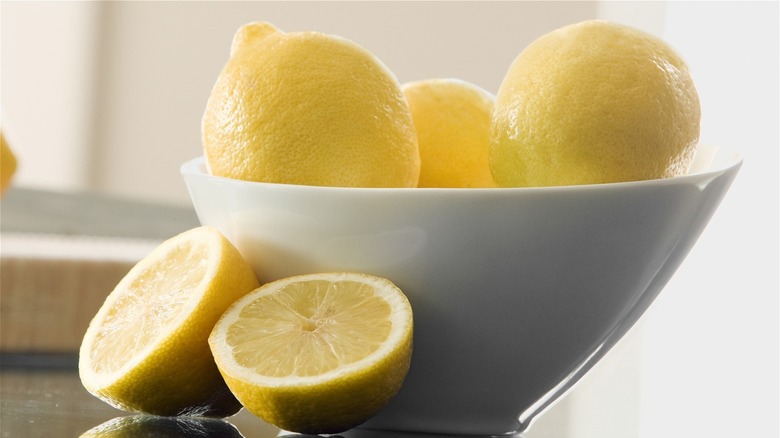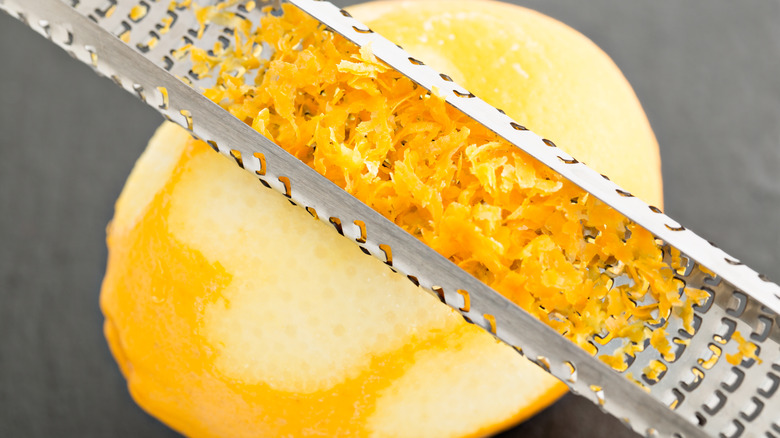The Biggest Mistake You Make With Lemons? Storing Them In A Bowl
If you're all about kitchen aesthetics, you may love the concept of keeping a bowlful of lemons on the counter. Not only does it add a touch of rustic Mediterranean charm, but you also get that fresh citrusy scent in the air. Which is all well and good, until the lemons dry out or grow mold, ick. What should you be doing with your lemons instead? Use the refrigerator; that's what it's there for. In fact, if you really want your lemons to last for weeks at a time, the best thing to do is to seal them in an airtight container such as a ziplock-style bag. Such a container will seal in the necessary moisture to keep your lemons nice and juicy for as long as a month or perhaps even up to a couple of months.
If you simply must have those countertop lemons, though, there are a few precautions you can take to extend their shelf life. For starters, keep your kitchen as cool as possible and also protect the lemons from sunlight by placing them away from any windows. You'll also want to wash and dry them thoroughly — too much moisture and they'll start to grow mold — and then arrange them in a single layer. That way, if one lemon goes bad it won't spoil the whole bowl. As a bonus, it'll limit the amount of lemons you can display so you'll be forced to store the rest of them in the refrigerator where they belong.
Refrigeration is best for zested lemons, too
Zested lemons, as opposed to intact ones, are something you probably wouldn't want to display in your kitchen since they're not quite so attractive in their partially peeled state. That outer coating of pith, while fragrant, will make the fruits look like the ghosts of the lemons they once were (and still are, underneath). What's more, those half-naked lemons will dry out pretty quickly without that extra layer of protective coating even if you do refrigerate them instead of keeping them in a bowl. We'd never advocate throwing them out when reducing food waste is so important, but do suggest you store each zested lemon in a ziplock bag or encase it in plastic wrap to keep it juicy for at least three weeks. You could even opt for a purpose-built lemon keeper if you'd rather look at a plastic lemon than have that spooky white pith haunting your produce bin.
As for the zest itself, this can be bagged and refrigerated for about five days before it, too, starts to dry out, but then, that's not necessarily a bad thing. In fact, another way to preserve lemon zest that's not going to be used right away is to air-dry it at room temperature for a few days. Alternatively, you can freeze it in a single layer and then keep it forever and ever, or at least until the freezer breaks down or power goes out for an extended period.

